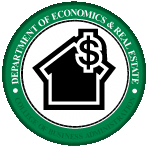Document Type
Article
Publication Date
6-1-2006
Publication Title
Business in Nebraska
Volume
61
Issue
683
Abstract
National economic conditions will continue to favor growth over the next three years, including sustained increases in manufacturing employment. Higher energy prices, particularly for oil, gasoline, and natural gas, will impact the economy, but probably only will moderate economic growth rather than cause a significant slowdown.
After rapid growth in 2004 and 2005, growth in real gross domestic product is expected to moderate in 2006-2008, due to higher long-term interest rates as well as higher energy prices. Real gross domestic product will grow 3 percent in 2006 and fall to 2.5 percent growth in later years. The housing market will be another factor weighing on the economy. New housing starts are expected to moderate in 2006 through 2008, falling from record levels in 2005.
Growth in gross domestic product will be strong enough to sustain employment growth at a steady 1.5 to 1.7 percent rate, which is in line with recent job growth. The rate of inflation will hit 3.5 percent to 4.0 percent in 2006, but is expected to moderate to around 2.5 percent to 3.0 percent in 2007 and 2008. More rapid inflation, however, remains the main risk to the forecast. Recent energy price increases, which are likely to be sustained, may continue to filter through the economy. This could cause broad-based price increases. There also is a possibility that energy prices could rise even more, causing higher inflation, and further restricting economic growth. The likelihood of such a high inflation scenario will decline, however, if the Federal Reserve continues to raise short-term interest rates and use other monetary policies to reduce inflation. The new Federal Reserve Board head, Ben Bernanke, appears willing to do so.
Recommended Citation
Austin, John; Decker, Chris; Doering, Tom; Goss, Ernie; Hernandez, Nick; Johnson, Bruce; Lemke, Ken; Petersan, Donis; Schwarz, Franz; Thompson, Eric; and Turner, Keith, "Manufacturing Rebounds" (2006). Economics Faculty Publications. 1.
https://digitalcommons.unomaha.edu/econrealestatefacpub/1

